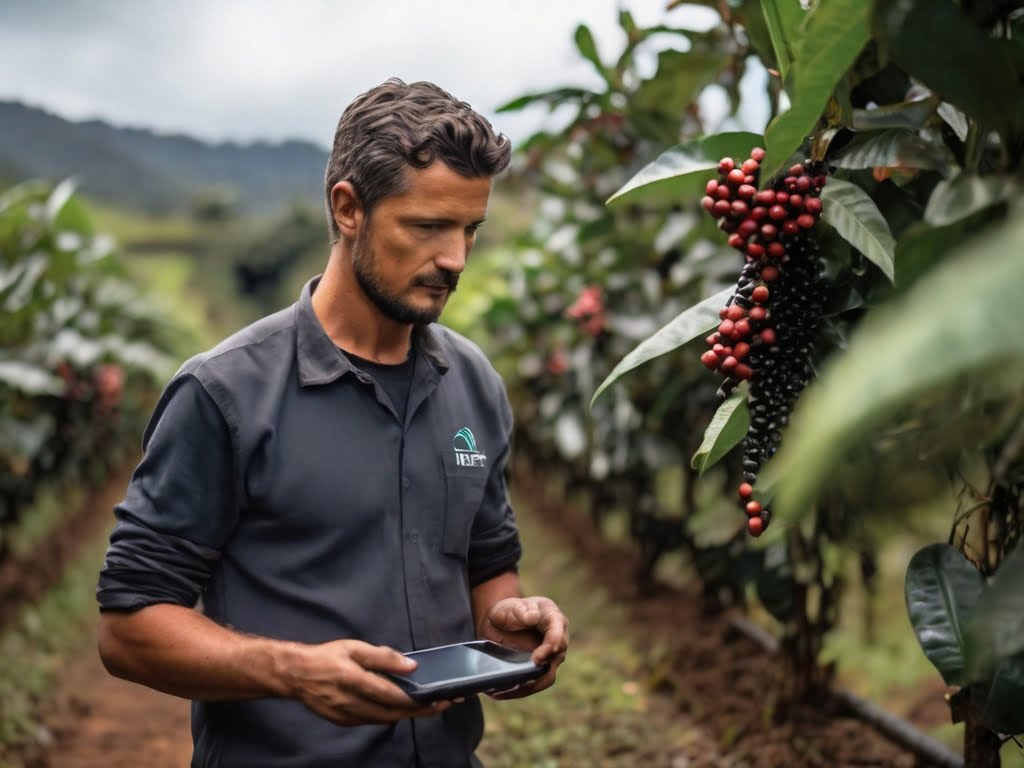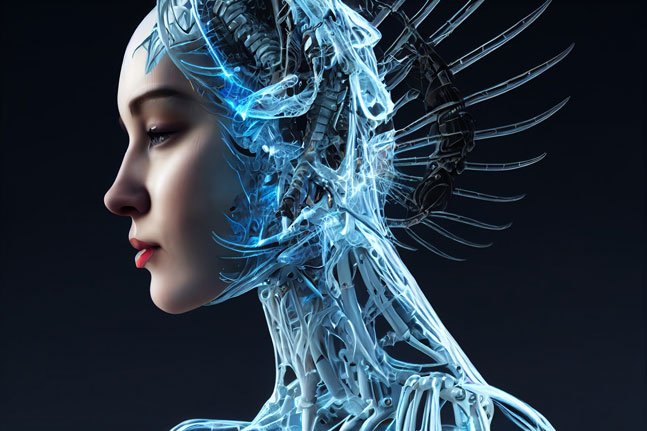By making the world smarter, artificial intelligence (AI) is transforming it. Retail, law, media, advertising, and coffee farming are just a few of the areas that AI has already revolutionized. Now, with an emphasis on precise planting, yield, and seasonal timing, artificial intelligence is poised to alter the world of coffee production.
AI systems can assess and interpret data about a specific crop using big data, taking into account anything from soil type to weather patterns and other variables. Soon after this data has been analyzed, AI-powered software can then precisely suggest the best planting timing for a particular crop type or even a single plant. In order to maximize yields and prevent over- or underplanting their fields at different periods of the year, other AI-powered tools are being created to assist farmers in planning their harvests in advance.
Many other crops are already being transformed by artificial intelligence, but coffee growing has particular difficulties that call for novel approaches like machine learning tools and other AI-driven technologies.
Let’s get started with all you need to know about the use of artificial intelligence in coffee production, from its potential effects on the industry to how farmers have responded so far.
What is Artificial Intelligence in Coffee Farming?

Artificial intelligence in agriculture refers to a group of technologies that employ computer algorithms to make judgments and solve issues in a manner comparable to that of humans, only faster and with more precision. Numerous sectors, from retail to law, from journalism to advertising, have already been significantly altered by AI.
With an emphasis on precise planting, yield, and seasonal timing, artificial intelligence is now poised to revolutionize the world of coffee production. AI is being used to process data and generate precise suggestions about the best times to sow a certain crop type or even a single plant.
Machine learning techniques employ data on a particular crop to continuously evaluate, analyze, and provide fresh and useful recommendations to the AI and its algorithms.
Why is Artificial Intelligence needed in Coffee Farming?
The difficulties in producing coffee are varied among them are the following:
- There are lots of different kinds of coffee plants with different growth rates
- The crop is sensitive to weather conditions and requires special care
- Predicting planting dates accurately is difficult
- The importance of the coffee plant microbiome cannot be ignored
- The challenge of precision irrigation
- The challenge of precision harvesting
- The challenge of precision roasting
- The challenge of precision packaging
- The challenge of precision labeling
- The challenge of precision replanting
- The challenge of precision taste quality
In other words, farmers face problems at every step of their farming careers. These difficulties can be mitigated or removed with the use of artificial intelligence and machine learning. Farmers have the ability to provide correct crop recommendations while also adapting to the problems they confront.
The application of AI will assist farmers in solving their problems in an effective manner, particularly in the coffee business.
Importance of data for AI-based crop recommendation system
Machine learning is the process through which a computer system attempts to build a model out of enormous volumes of data. A model is a collection of algorithms or mathematical procedures that are used to evaluate data and draw conclusions or make suggestions.
The data for an AI-based crop recommendation system must be substantial and of high quality, which means it must be abundant and relevant to the situation at hand.
For example, AI-powered software that assists farmers in forecasting harvests may be educated using data on the coffee producing region, meteorological conditions, and soil type. This information assists the AI-powered program in making suggestions regarding the best time to plant, reap the harvest, or other aspects of coffee farming.
How Artificial Intelligence helps optimize coffee planting sequence
As previously discussed, machine learning is a useful tool for recommending ideal planting schedules by taking into account numerous characteristics such as soil type, weather patterns, and other variables.
After examining this data, the machine learning tool suggests to the AI new algorithms for ideal planting timings for a certain crop type or individual plant. But, more crucially, the system can advise on when and how to plant numerous types concurrently. Similarly, a machine learning program may propose the sequence in which to plant, harvest, and roast various coffee kinds.
Based on predictive models, these systems can advise whether to plant early or late to take advantage of certain weather patterns and other factors.
Key benefits of AI-powered crop planning software
There are several important advantages of employing AI-powered coffee growing software.
Precision Planting of Coffee Crops
Precision planting is a concern for coffee producers. Topsoil is not always easily accessible in many regions. AI-powered crop planning software can advise farmers on how to best use geography and topsoil. The AI may even recommend treatment and fertilization operations while keeping green and ecologically friendly notions in mind.
Yield Potential
A coffee crop’s potential output is influenced by a variety of elements, including the growing environment. Farmers can maximize their yield potential by optimizing their planting timings and sequences with the use of AI-powered crop planning software.
Seasons and Seasonal Timing
Another farming problem is the timing of the seasons. Farmers can plan their harvests with the use of artificial intelligence to maximize yields and prevent over- or under-planting their crops at various periods of the year. This could also lead to higher sales of green and roasted beans, which would improve profits.
Cost Savings
AI can help increase cost savings by eliminating planting sequence mistakes and advising the ideal time to plant and harvest. AI and machine learning can also be tailored to local and global market conditions. Farmers can save time and money with the reduction in labour, marketing, and shipping expenses.

Precision Irrigation
With the help of machine learning, AI can recommend the optimal irrigation schedule for a particular crop. This can help farmers to get the most out of limited water resources, and to contribute to carbon reduction.
Precision Harvests
With the help of AI, it is possible to plan a harvest sequence that will result in higher yields. AI can recommend the optimal sequence and timing of the harvest, taking into consideration the ripening pattern of each variety of coffee plant and the overall growth pattern of the farm.
Precision Roasting
With the help of machine learning and the data generated from sensor readings, it is possible to recommend the optimal time for roasting a particular coffee. In coffee farming this helps farmers to get the best flavor and aroma from their beans, while simultaneously getting the highest profit by evaluating and predicting market conditions.
Precision Packaging
AI can recommend the best time for packaging a particular coffee. This helps farmers to get the best value for their beans and to enjoy the full aroma and flavor from the beans after roasting. But it also helps reduce costs and increase profits by selecting optimum shipping times and schedules.
Precision Labeling
AI can recommend the best time for labeling a coffee with the correct batch and lot numbers. This helps to ensure that there is no confusion about who brewed the coffee and when it was roasted.
Precision Replanting
With the help of machine learning and advanced sensors, AI can recommend the best time for planting a seeding that has grown well previously. This helps to maintain the quality of the coffee crop and to avoid replanting too soon or too late.
Precision Taste
AI even recommend the best time for tasting a coffee with other sensory factors such as aroma and body. This helps to ensure that a coffee has the right flavor without being over-brewed or under-brewed. And more importantly, artificial intelligence and machine learning can be used to recommend the best tasting brews and brew times to guarantee the best flavor with every tasting.
The Last Drop
Artificial intelligence is already changing coffee farming and the way we produce many other crops. However, coffee cultivation offers distinct issues that have forced the development of innovative solutions such as machine learning and other AI-driven technologies.
Artificial intelligence will change the production of coffee forever, and will influence how coffee farmers deal with unique agricultural problems.








